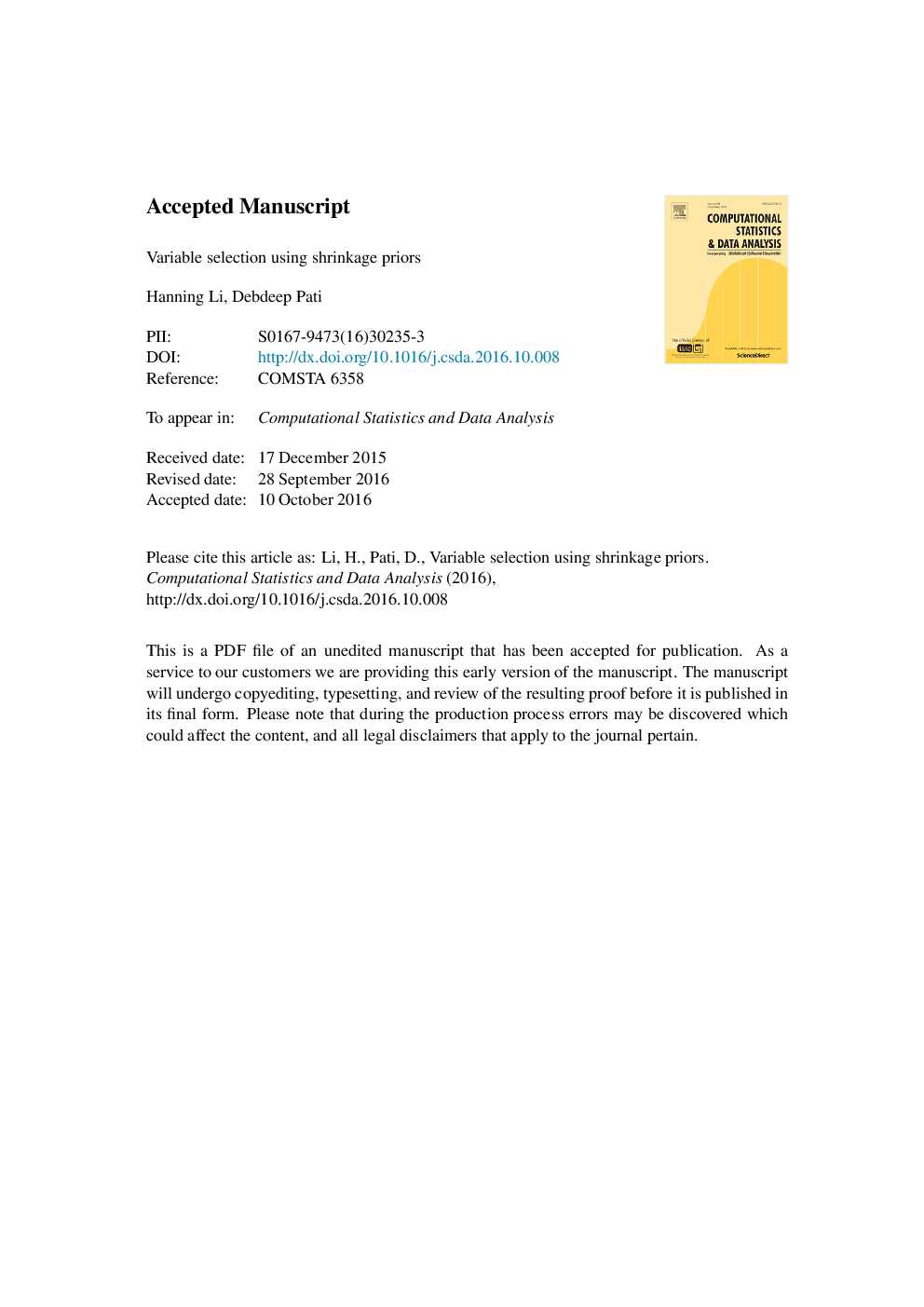| Article ID | Journal | Published Year | Pages | File Type |
|---|---|---|---|---|
| 4949374 | Computational Statistics & Data Analysis | 2017 | 27 Pages |
Abstract
Variable selection has received widespread attention over the last decade as we routinely encounter high-throughput datasets in complex biological and environment research. Most Bayesian variable selection methods are restricted to mixture priors having separate components for characterizing the signal and the noise. However, such priors encounter computational issues in high dimensions. This has motivated continuous shrinkage priors, resembling the two-component priors facilitating computation and interpretability. While such priors are widely used for estimating high-dimensional sparse vectors, selecting a subset of variables remains a daunting task. A general approach for variable selection with shrinkage priors is proposed. The presence of very few tuning parameters makes our method attractive in comparison to ad hoc thresholding approaches. The applicability of the approach is not limited to continuous shrinkage priors, but can be used along with any shrinkage prior. Theoretical properties for near-collinear design matrices are investigated and the method is shown to have good performance in a wide range of synthetic data examples and in a real data example on selecting genes affecting survival due to lymphoma.
Related Topics
Physical Sciences and Engineering
Computer Science
Computational Theory and Mathematics
Authors
Hanning Li, Debdeep Pati,
